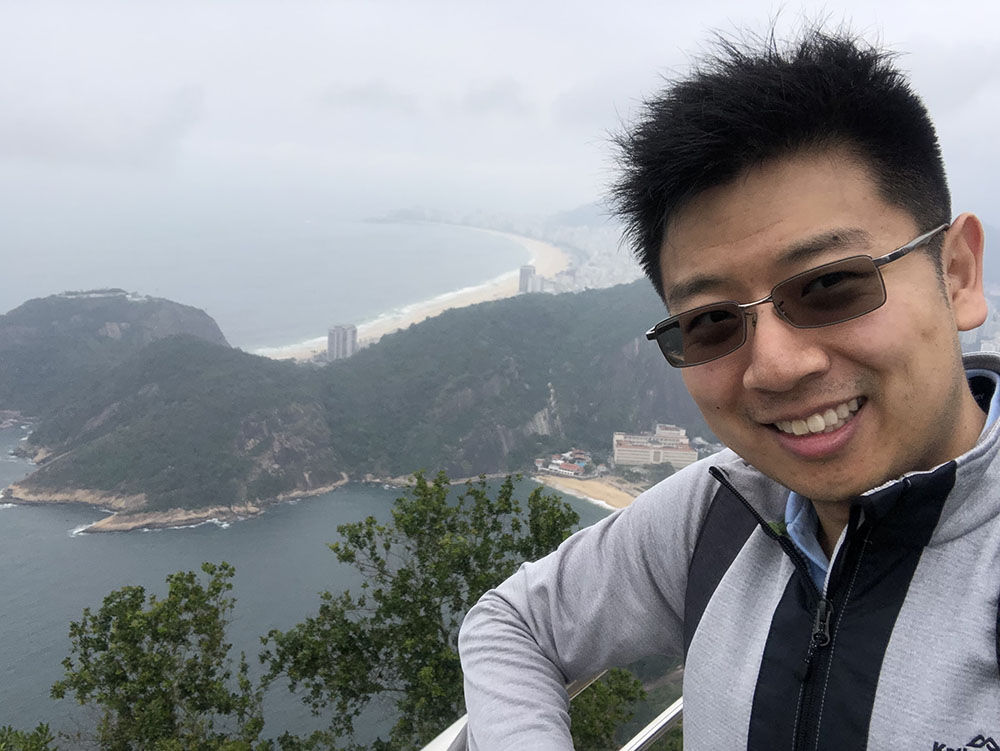Spotlight on a Student: Michael Liu
Optimal Power Flow for Active Distribution Networks: Advanced Formulations, Practical Considerations and Laboratory Demonstration

Michael Liu completed his thesis in October with the Department of Electrical and Electronic Engineering. The aim of his PhD project was to demonstrate the technical feasibility of advanced network management schemes using the Optimal Power Flow technique (OPF).
Michael is currently working at the University of Melbourne as a Research Fellow in the Department of Electrical and Electronic Engineering where he continues with his research.
What is your research about?
The focus of my research is using optimisation-based algorithms to orchestrate the real-time operation of distributed generation (DG) in electricity distribution networks.
The rapid uptake of renewable DG, from rooftop PV systems to wind farms, is creating significant operational challenges for distribution companies due to the resulting bidirectional power flows. This is because existing distribution networks are designed to serve load, not accommodating local generation. Nonetheless, instead of causing issues, the real-time orchestration of DG can become a key enabler of even higher DG penetrations without incurring negative network impacts.
To this end, Optimal Power Flow (OPF)—a mathematical optimisation problem that combines both the control decisions and the underlying physics—has shown great potential as the decision-making engine in the control rooms of future distribution networks. Particularly, by solving the OPF problem, the desired control setpoints (according to the adopted objective and constraints) can be obtained.
The aim of my PhD project is to demonstrate the technical feasibility of advanced network management schemes using the OPF technique. Overall, this project can be divided into three work streams. The first stream focuses on developing a fast and scalable (i.e., tractable) OPF formulation that caters for the size and complexity of typical distribution network. The second stream investigates the necessary considerations when OPF-based schemes are to be implemented in practice, such as the adequate coordination of multiple controllable devices and the fairness implications on DG owners from various optimisation objectives. The final stream involves developing a realistic demonstration platform (using hardware-in-the-loop simulations) to showcase OPF-based schemes to industry.
Who are your supervisors?
I was privileged to have Prof Luis (Nando) Ochoa, Professor of Smart Grids and Power Systems, and Prof Pierluigi Mancarella, Chair of Electrical Power Systems, as my supervisors. Their expertise in both academia and industry projects has greatly inspired me to think not only as a researcher but also as an engineer.
What do you want to do next?
I would like to work on industry projects where I can apply the theoretical foundation from academia to solve real world engineering problems. The AC power system is undergoing, arguably, the most significant transformation since its inception a century ago; renewable generation already has an indispensable role and other low carbon technologies, such as battery storage and electric vehicles, are emerging rapidly. This is definitely an exciting time to be involved in the electricity distribution sector where many of these technologies are being connected.
Have you received any awards?
My paper titled Hardware-In-the-Loop Demonstration of Advanced Control Schemes for Active Distribution Networks received the Best Paper Award (Energy and Distribution Management System) at the IEEE PES Innovative Smart Grid Technologies (ISGT) Latin America conference in 2019.
I also received the Best Poster Award (Energy Systems) at the MEI Symposium 2019 for my poster titled Fairness Assessment of Volt-Watt Schemes for Residential PV Systems. And this month I was awarded a Bronze prize at the 2020 AIE Victorian Student Poster Awards.
Further information
Michael is happy to answer any questions about his research. You can contact him via email with any questions that you may have.